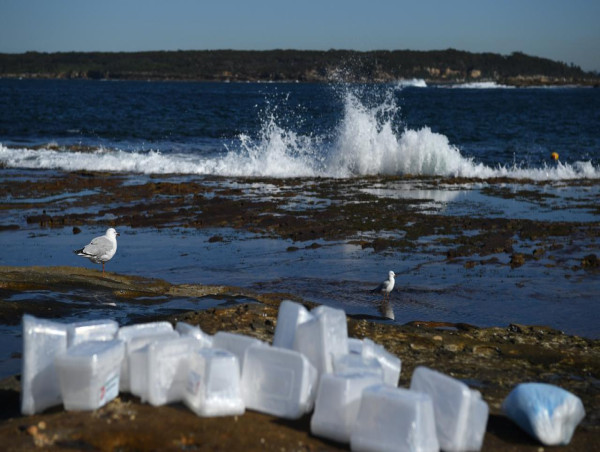Plastic now dwarfs every other kind of litter found on Australian shores and 80 per cent of what the nation uses still ends up in landfill.
A federal parliamentary inquiry has heard confronting evidence about how the pollution crisis is affecting Australia's oceans and waterways, and how efforts to understand and tackle the problem are failing.
"Our research has found that about three-quarters of the waste on Australian coastlines is plastic," the CSIRO's Peter Mayfield told the inquiry's first hearing on Friday.
Even worse, the vast majority of the plastic measures just a few centimetres or smaller, meaning it's more easily ingested by wildlife and more able to break down further and release the toxic chemicals used to make it.
The hearing was told Australian authorities are yet to fully assess the risks posed by plastics.
The Australian Industrial Chemicals Introduction Scheme, for example, has not attempted to regulate what toxic additives like fire retardants can be in imported plastics.
"We don't know the ingredients of what we are importing, of what we are getting," Kala Senathirajah from Engineers Australia said at the hearing.
"We firstly need to identify the polymers of concern, because not all plastics are equal in terms of the impacts they have on human health as well as the environment."
Global production of new plastic is expected to triple by 2060 with its use as strong as ever, the inquiry was told, and recycling is failing to offset that including in Australia where 80 per cent still winds up in landfill.
"We estimate a doubling time of every 11 years. Which means that in the next 11 years, (the world) will make as much plastic as we've made since the inception of plastic production in the the 1950s," said the CSIRO's Britta Denise Hardesty.
Dr Hardesty said the degradation of plastic releases methane and carbon dioxide, which accelerate the pace of climate change. The plastics tend to degrade faster in higher temperatures, and leach out more.
"With climate change we know there (will be) increased frequency and intensity of natural hazards like bushfires, storms, cyclones. All this exacerbates the plastic pollution problem because it distributes it. It's a vicious cycle."
The inquiry was told the single biggest thing Australia can do to reduce the problem is to reduce plastic use. Recycling and environmental clean-up efforts are no silver bullets.
"If all we do is clean up, that is all we will ever do," said Heidi Tait, founder of the Tangaroa Blue Foundation which co-ordinates a database on Australia's marine debris.
"We are not on track to meet nationally agreed (but voluntary) plastic packaging targets. In fact, we are very very far from it," she told the hearing.





